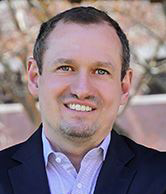How Otsuka Uses Decentralized Trials & Real-World Evidence

By Ed Miseta, Chief Editor, Clinical Leader

Prior to joining Otsuka Pharmaceutical Companies (U.S.) in 2019, Christoph Koenen spent two years with GSK, 10 years with Novo Nordisk, and eight years with BMS. He currently serves as EVP and chief medical officer for Otsuka. I recently spoke to him about some of the key lessons he’s learned over the years and how Otsuka is applying new clinical trial strategies and technologies, especially for the treatment of patients in mental health trials.
Ed Miseta: You work with patients who need treatments for mental health issues. How are decentralized trials assisting those patients?

It is public knowledge that we are currently working in a collaboration with Click Therapeutics. With that collaboration we are looking at the use of digital technology to augment the treatment of major depressive disorders. Technology already plays a role in the mental health space, and with this partnership, we expect it will play an even bigger role in the future.
The other issue relates to the use of these technologies in the clinical trial itself. In the past, many of the interactions we had with patients in the mental health space happened through in-person, verbal exchanges. However, there is no need to perform tests like biopsies on mental health patients. Therefore, the need to meet with patients in person is reduced, and the interactions that a healthcare provider has with a patient can easily be conducted via virtual interactions. That is another reason why the use of digital technologies in mental health clinical trials will advance much faster than it has in other therapeutic areas.
Miseta: Otsuka recently entered an agreement with Spencer Health Solutions for the use of their smart hub in clinical trials. What will that agreement mean to your studies?
Koenen: We believe this agreement will create a transformational patient experience. The smart hub is an at-home medication device that connects patients and their care teams through an integrated platform. I believe our success is driven by our commitment to the democratization of clinical trials, patient engagement, and the leveraging of technology. That will help us improve diversity and inclusion in our clinical research. The smart hub helps increase patient engagement and raise medication adherence. The product will be used for both medication management and telehealth visits with care providers.
Miseta: You have a long career in pharma. Thinking back, can you think of an important lesson you've learned that still resonates today in your position at Otsuka?
Koenen: There is one thing I can mention that hasn’t necessarily motivated me to get more involved with technology solutions but certainly has me placing a greater focus on patients and the importance of patient diversity in clinical trials. It goes back to when I was growing up in Germany in the 1980s. At that time, Germany was not a very diverse country when it comes to ethnicity. It made me think about what I wanted to do when I went to medical school. I opted to spend one semester working in South Africa, which happened to be the year Nelson Mandela was elected president. I completed many of my electives in a small rural hospital on the border with Mozambique. That semester, for the first time in my life, I experienced underprivileged communities and the struggle people in those communities face when it comes to their own healthcare. I also saw the challenges of what it takes to provide healthcare to underprivileged communities.
Miseta: Is that knowledge something you can use in clinical studies?
Koenen: Absolutely. There is a lot that I learned from that experience and I still think back on it often. More importantly, I am now in a position where I can try to make a difference in underserved communities and think about how we can help individuals in those communities benefit from healthcare. In my role as someone who oversees the conduct of clinical trials, it's my responsibility to ensure the communities I want to serve will be appropriately represented in my clinical trials. That thinking goes into the sites we select, the communities in which we opt to conduct trials, and the patients we select for participation. Clinical trials can be a source of healthcare for patients, and that is something that really motivates me in my day-to-day job.
Miseta: Another topic you have an interest in, and which is gaining a lot of traction in clinical trials, is the gathering and use of real-world evidence (RWE). How is Otsuka making use of that data?
Koenen: At Otsuka we are taking a close look at the importance and use of RWE. Part of that interest is driven by our desire to make sure we adequately represent different patient populations in our trials. Obviously, RWE allows us to do that at a completely different scale. Our evidence database will include hundreds of thousands of patients. The more patients we include, the higher the likelihood is that we will get an adequate representation of the community we serve. That’s one aspect of RWE. Another is the role played by technology. The emergence of electronic patient records and the increased utilization of electronic patient records improves our ability to get meaningful endpoints out of real-world evidence. The number of datasets we use will increase. And then artificial intelligence will enable us to take those large data sets and analyze this information in a completely different way than how we're doing it right now.
